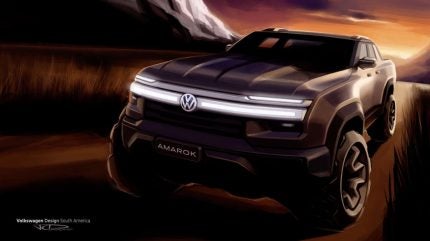
Volkswagen (VW) is set to launch a new version of its Amarok mid-size pick-up truck, specifically tailored for the South American market, with production commencing in Argentina from 2027.
To support the launch of the new Amarok model, the German automotive giant is investing $580m into its Pacheco plant, ensuring it can meet the demands of the new model generation.

Discover B2B Marketing That Performs
Combine business intelligence and editorial excellence to reach engaged professionals across 36 leading media platforms.
Volkswagen brand CEO and Brand Group Core head Thomas Schäfer said: “Regional growth and localisation are important elements of our global plan for the future.”
“This investment strengthens our position in a region that is strategically important for the Volkswagen brand. The new Amarok will be developed, designed and produced in South America, for South America. This means that it will be perfectly aligned with the specific needs of our customers in this market.”
Volkswagen aims to enhance production technology, digitalisation processes, and energy efficiency at the Pacheco plant, which has a history of producing over 770,000 Amarok units.
This initiative is part of the company’s strategy to operate sustainably and adapt to the technological advancements of the automotive industry.
While the new Amarok will cater to the South American market, Volkswagen will maintain its existing partnerships for Amarok production in South Africa.
This move ensures a steady supply of vehicles to international markets, while also focusing on a product strategy that aligns with the preferences and requirements of the Latin American consumers.
Volkswagen Latin America CEO Alexander Seitz added: “Argentina is a key component of our South American strategy. This investment underlines our confidence in the country’s industrial capabilities. The new Amarok sets new standards in terms of performance, innovation and sustainability.”
Last month, Volkswagen Group sold a 2.2% stake in Traton Group for €360m lowering its direct ownership from 89.7% to 87.5% in the truck and bus manufacturing.






